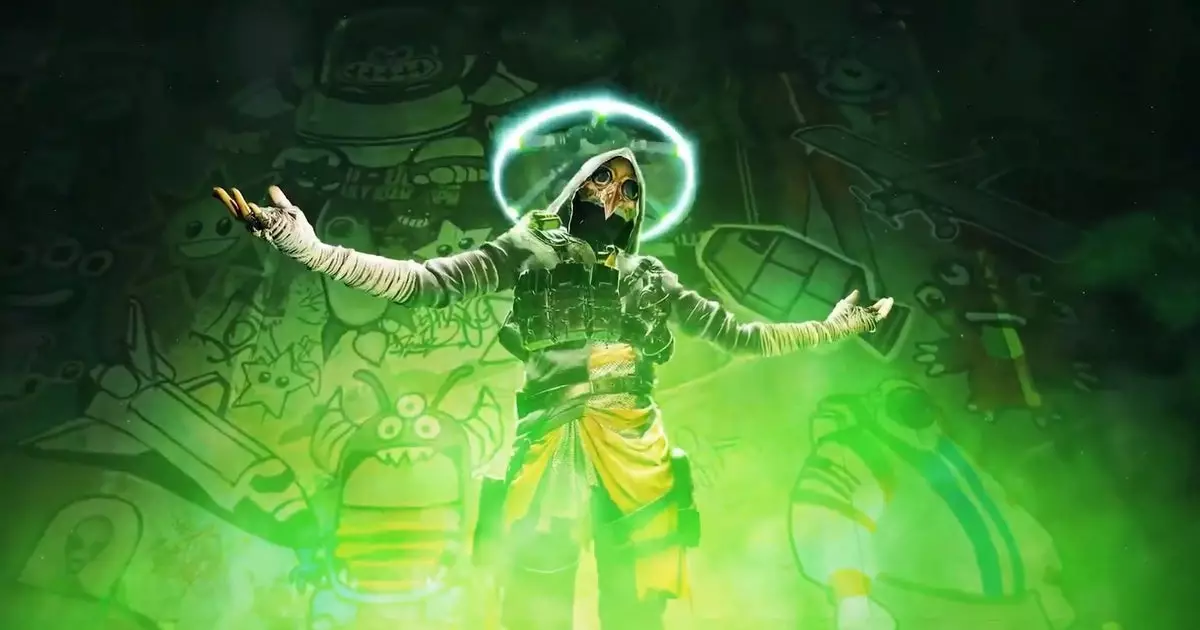Ubisoft’s recent decision to terminate its PvP shooter, XDefiant, marks a significant setback not only for the company but for the gaming community at large. Announcing the layoffs of approximately 277 employees across various development studios, Ubisoft disclosed that it had “not been able to attract and retain enough players in the long run” to thrive in the highly competitive free-to-play FPS market. This statement from Ubisoft executive Marie-Sophie de Waubert reflects a painful reality for developers, offering a sobering reminder of the uncertainty that looms over modern multiplayer titles.
The repercussions of this decision were immediate, affecting teams in key locations such as San Francisco, Osaka, and Sydney. The terminology utilized in the corporate messaging—specifically the word “departing”—stands out as particularly jarring. This language attempts to soften the blow of mass layoffs, transforming what is inherently an uncomfortable news piece into something that sounds more amiable. Yet, the reality is stark: over half of the team that dedicated their efforts to this multiplayer vision have now found themselves without work.
The Challenges of Free-to-Play Model
The gaming landscape has undeniably shifted over the past decade, with free-to-play models becoming ever more ubiquitous. However, Ubisoft’s struggle to navigate this terrain serves as a cautionary tale of the challenges embedded in this approach. Numerous industry watchdogs and players alike have been vocal about the pitfalls of the games-as-a-service business model, yet companies continue to chase this strategy — leading to unsatisfactory results, as seen in the case of XDefiant.
De Waubert’s insistence that despite this failure, Ubisoft’s commitment to this model remains unchanged showcases a level of stubbornness that may not align with market realities. The distinction lies in reinforcing a business strategy amid rising competition and a saturated market, while acknowledging the lessons learned from XDefiant’s downfall. Compounding this issue is the prospect that even established franchises like Rainbow Six Siege faced initial struggles before finding their footing. This reliance on the notion that every game can mimic past successes—despite varying circumstances—risks further stagnation and disappointment.
It’s worth noting that the layoffs speak not only to the precarious nature of game development but also highlight broader implications on company culture and colleague morale. Witnessing one’s peers “depart” en masse can breed an atmosphere of uncertainty and fear. Employees may begin questioning their own job security, productivity, and the overall direction of the company under such circumstances. The loss of talent does not merely impact ongoing projects; it erodes institutional knowledge that cultivates innovation and nurtures a cohesive team dynamic.
This scenario raises important discussions on how companies manage resources and talent in such a shifting landscape. Ubisoft’s assertion that support will continue for other projects despite these layoffs rings hollow when considered in light of their treatment of XDefiant’s development team. The relationship between management and staff may suffer, leaving a lasting impact on future projects as developers feel less secure in their roles.
For gamers, the news couldn’t have come at a more disappointing time. Just months prior, executive producer Mark Rubin proffered assurances that XDefiant was not “dying” and emphasized the team’s resource allocation to improve the game. His optimistic rhetoric gave players just enough hope that the title would evolve into something more cohesive and palatable. However, the swift turnaround reinforces a disillusionment that players have come to expect from a volatile industry.
Anticipated updates may no longer materialize, leaving dedicated fans and players with a bitter sense of abandonment. With the discontinuation of XDefiant, and the absence of downloadable content or in-game purchases, the community now feels sidelined. The gamer investment—both emotional and financial—creates a rift that leads to significant dissatisfaction.
As the dust settles from this latest setback, it raises critical questions about the future of multiplayer titles and the strategy devised by companies like Ubisoft. Will the gaming giant persist with a business model that holds a track record of mediocrity and failure? Have lessons truly been learned, or will the cycle of launching half-baked projects continue unabated?
Ubisoft’s handling of XDefiant stands as a harsh reminder that the excitement surrounding new releases can quickly dissipate when the necessary support is absent. For the dedicated players and passionate developers whose efforts went into this title, the future may appear bleak, but it offers a moment to reassess priorities and expectations in an ever-evolving gaming world. Ultimately, only time will reveal the lessons Ubisoft takes from this experience—and how they might shape the next chapter in their storied history.


Leave a Reply